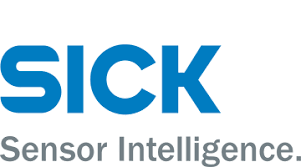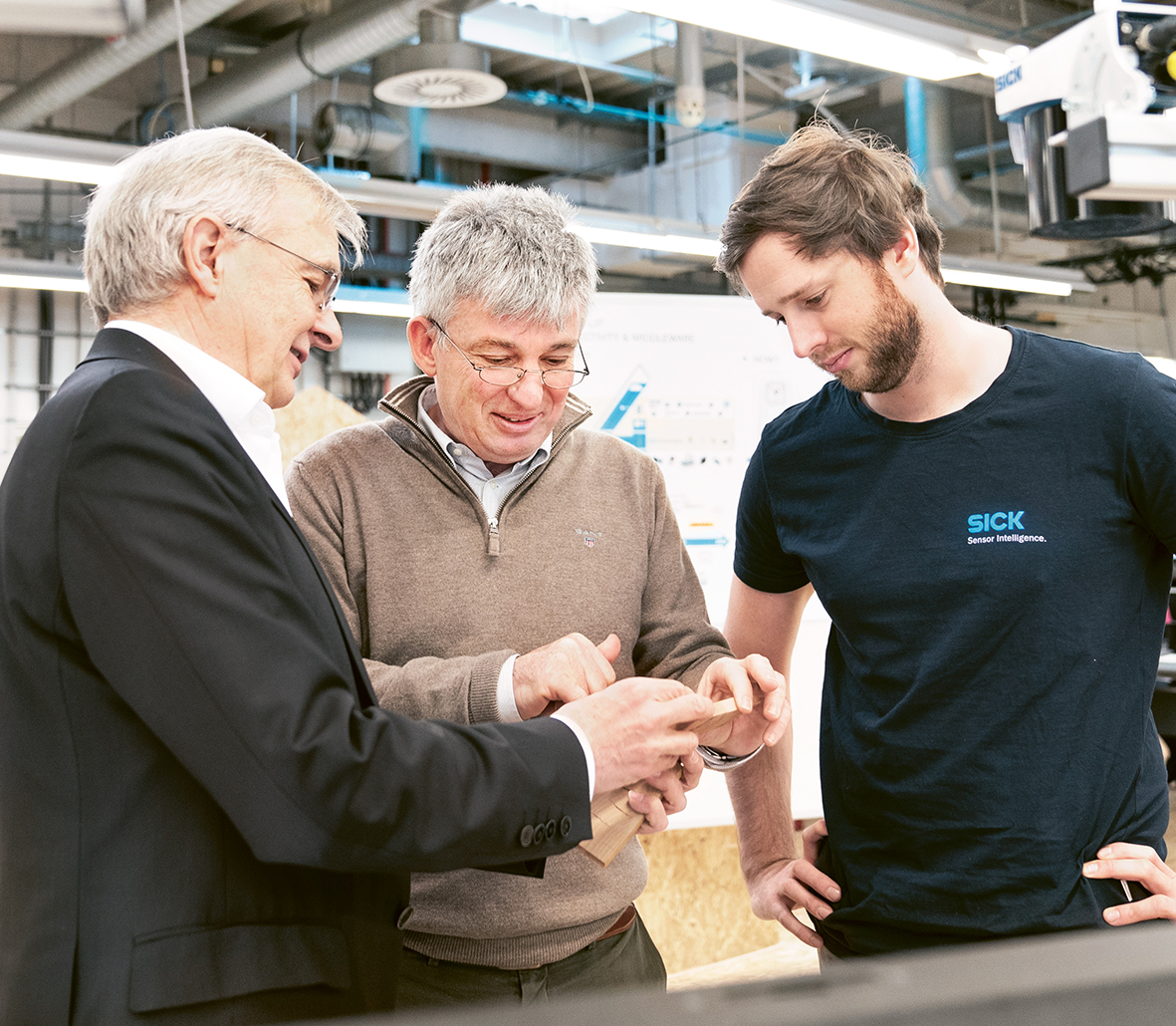
Annual Report
THE YOUNG START-UP INITIATIVES AT SICK
»WE SIMPLY MAKE FANTASTIC SENSORS - THAT IS OUR ORIGIN AND OUR FUTURE«

The young start-up initiatives at SICK have a fresh mind-set and the ability to carry out agile thinking and action. At the same time, they are well-anchored on a solid Group basis. They have achieved astonishing results with this combination.
“Traditional development work involves us telling our best engineers to develop a sensor that can detect, say, straps on packages,” Nina Kadisch, team member of the Deep Learning / Analytics start-up initiative, explains the difference between the established and the new, disruptive development strategy. “The team of experts must then engage with every possible constellation of straps on packages and try to achieve a result with conventional algorithms, slowly optimizing it in repeated practical tests and bringing it to market maturity.” Nina Kadisch frowns deeply during this description. She then makes a fundamental shift in perspective: “Let’s consider the whole thing with the cognitive abilities of a school child – after a learning phase, the child will be able to say whether there is a strap or not. The child would solve even unusual and untested constellations intuitively, like detecting a white band on a white package.” It is with exactly this deep learning approach that the team (made up of a total of nine programming, data, and application specialists) is currently implementing a trained neuronal network in order to considerably shorten innovation cycles for even better sensor solutions.

Nina Kadisch is standing in an old industrial hall in Waldkirch. There are, however, no more machines here, but dozens of freely arranged desks. In addition to a forum with a large screen, there are also various seating areas with sofas for discussions. Most of the roughly 150 employees from the 15 start-ups that SICK founded last year work here. “New forms of work and collaboration are required when established organizations and processes come up against their limits,” emphasizes Dr. Kay Fürstenberg, a member of the start-up steering team, which addresses and operatively coordinates the work of all the initiatives. “In addition to added value for the customers, speed, above all, has become a key factor for surviving in competition.”
In terms of speed, Nina Kadisch’s team is doing well: “Our proven systems open up easy first market access for us. We have already installed systems that are trained using deep learning principles in the field test. We want to improve the individualization of packages, the classification of goods consignments, or empty tote detection in sorting containers.” But this is just the first step, because the team wants to transfer solutions found in this way to standard solutions and adapt them customer-specifically.
Enabling sensors to collect data is common to all 15 start-ups at SICK. Because in addition to the indispensable hardware, Industry 4.0 needs one thing above all – data. In future, users should be able to better use their sensor data in the spirit of Industry 4.0. This is based on industrial automation solutions in the form of established serial products, systems, or services. The start-up initiatives expand these solutions with added value from the world of data, process the ideas of Industry 4.0 with the competence of SICK, and thus offer added value for the customers through the direct use of data.
In view of the speed with which these requirements have to be implemented, the working organization must be characterized by highly flexible structures and ways of thinking. In this way, the course can be corrected immediately if new knowledge requires changes in the objectives: “In the start-up initiatives, we rely on the founder mentality of the people involved and on flat hierarchies. Great flexibility is necessary to reach the so-called Moving Targets, i. e., the aims that change during the course of the project. Knowledge is further developed through an open exchange within the world of SICK, but also with our customers. Thus, networking is converted into knowledge and knowledge into innovations,” Dr. Kay Fürstenberg sums up the mind-set, intention, and aims of the start-up organization.
»THE TEAM OF EXPERTS MUST THEN ENGAGE WITH EVERY POSSIBLE CONSTELLATION OF STRAPS ON PACKAGES
AND TRY TO ACHIEVE A RESULT WITH CONVENTIONAL ALGORITHMS,
SLOWLY OPTIMIZING IT IN REPEATED PRACTICAL TESTS AND BRINGING IT TO MARKET MATURITY.«
NINA KADISCH, TEAM MEMBER OF THE DEEP LEARNING / ANALYTICS START-UP INITIATIVE
Above all, the teams are characterized by courage as well as visionary thinking and action. Whereby they exploit the strengths of SICK’s existing organization, which has, in effect, prepared the development of Industry 4.0 through its many years of work in the field of sensor intelligence. Nina Kadisch is convinced: “We simply make fantastic sensors – that is our origin and our future. Our organization has invaluable expertise. With the start-ups, we can also use it in new, more agile ways of thinking and working.” Ultimately, it is the customers who will profit most, as is already being demonstrated by the enormous interest in the sensors trained using the deep learning approach. ///